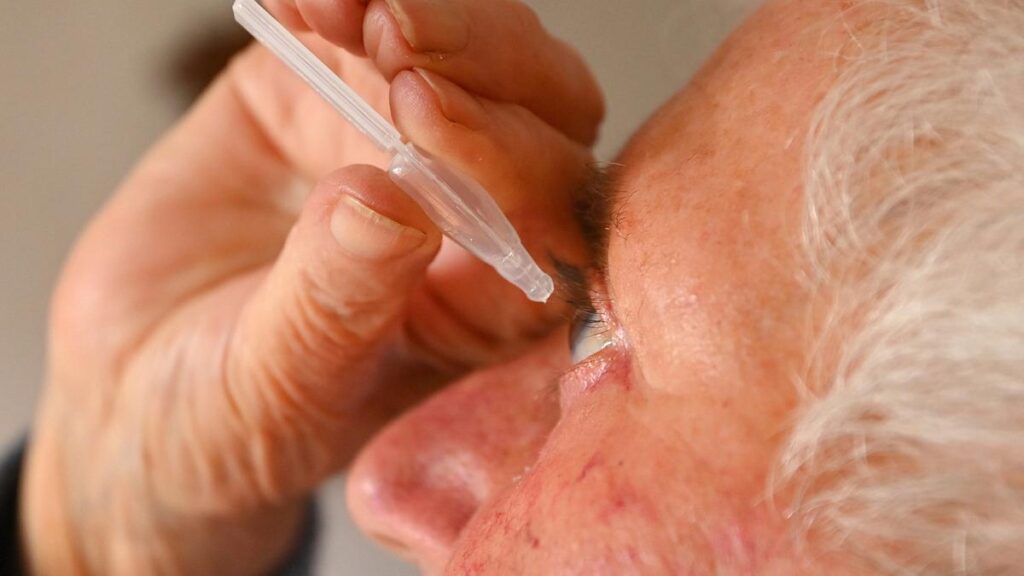
BREAKING: A revolutionary new treatment using eye drops could soon render reading glasses obsolete. Scientists have just announced that a simple course of drops can restore clear near vision for millions suffering from presbyopia, a common condition affecting individuals worldwide.
Recent findings presented at the European Society of Cataract and Refractive Surgeons (ESCRS) conference in Copenhagen revealed astonishing results from a study involving 766 participants in Argentina. The eye drops, which contain pilocarpine, a drug that constricts the pupils, showed a rapid and significant improvement in near vision, with many participants able to read additional lines on eye test charts after just one application.
Dr. Giovanna Benozzi, the lead researcher, emphasized the groundbreaking nature of these findings. “Our most significant result showed rapid and sustained improvements in near vision for all three concentrations,” she stated. Remarkably, patients experienced an average improvement of 3.45 Jaeger lines one hour after the first drops were administered.
This development is particularly crucial given that hundreds of millions of people worldwide face the daily inconvenience of presbyopia, often relying on reading glasses or invasive surgical options. The eye drops not only enhance reading ability but also improve focus at all distances, providing a comprehensive solution for those affected.
The results are staggering: 99 percent of the 148 patients in the highest concentration group achieved optimal near vision, managing to read two or more extra lines. Dr. Benozzi added, “This treatment could change the lives of many, eliminating the hassle of fumbling for glasses to read a menu or check a text.”
As discussions continue regarding the potential approval of these eye drops for wider use, experts suggest that if these findings are validated, the drops could revolutionize eye care and enhance daily living for millions.
In a world where convenience is key, this breakthrough offers not just a medical solution but a significant improvement in the quality of life for those struggling with presbyopia. The implications of this research are profound, and as this story develops, many will be watching closely for updates on regulatory approvals and availability.
Stay tuned for more immediate updates on this transformative development in vision care.







